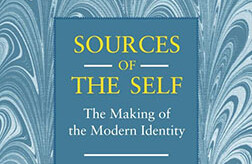Framing ethical perspectives
Applied ethics refers to the practical applications of the moral principles that govern behavior. Carnegie Council focuses on this field, mostly through the realm of international affairs, by identifying and addressing the most critical ethical issues of today and tomorrow. Our initiatives, content, and experts analyze the way that governments, institutions, and individuals interact and make choices on global issues, such as climate change, emerging technology, and governance.
Featured Applied Ethics Resources
Practical conversations, decision analysis, and more
MAY 10, 2022 • Podcast
Making Decisions When Values Conflict or Are Prioritized Differently, with Paul Root Wolpe
JUL 5, 2023 • Article
A Framework for the International Governance of AI
Carnegie Council, in collaboration with IEEE, proposes a five-part AI governance framework to enable the constructive use of AI.
APR 12, 2022 • Podcast
Surveillance Tech's Infinite Loop of Harms, with Chris Gilliard
In this discussion with Senior Fellow Arthur Holland Michel, Chris Gilliard explains why the arc of surveillance technology and novel AI bends toward failures that ...
Related Initiatives
Carnegie Ethics Accelerator
The Carnegie Ethics Accelerator is a new kind of incubator designed to empower ethics in the face of swiftly evolving challenges in technology and public policies.
Ethics & International Affairs Journal
Ethics & International Affairs is the quarterly journal of Carnegie Council. It aims to close the gap between the theory and practice of ethics.
Carnegie Ethics Fellows
The Carnegie Ethics Fellows program (CEF) seeks to cultivate the next generation of ethical global leaders across business, policy, technology, NGOs, and academia.
Explore Our Applied Ethics Resources
JUN 28, 2004 • Article
On Becoming Our Own Worst Enemy
"Ethics is a complex issue, and more so in war when our nation rightly sanctions deadly force in ways unacceptable in peace. But, . . we must ...
MAY 14, 2004 • Article
'Responding to "Delinquent" Institutions: Blame, Punishment and Rehabilitation'
Report on a workshop that confronts "both the conceptual and practical complexities of blaming, and attempting to respond to, formal organizations that are seen to ...
MAY 6, 2004 • Article
Feature Articles from Inprint Newsletter (2001–2004): From the Margins to the Mainstream: A Blueprint for Ethics and International Affairs
"For me, the way into the study of ethics and international affairs begins with the concept of choice", says Rosenthal. "Ethics is a reflection on ...
MAR 4, 2004 • Article
Feature Articles from Inprint Newsletter (2001–2004): From Andrew Carnegie to Hans Morgenthau
Carnegie and Morgenthau make an instructive pair, explains Council President Joel Rosenthal. Carnegie, an idealist, stood for "never again war," while Morgenthau stood for "never ...

JAN 14, 2004 • Transcript
Backstory: Inside the Business of News
Auletta explores four of "the deadliest sins of journalism": synergy, the clash of business culture and news culture, hubris, and bias.

JAN 14, 2004 • Podcast
Backstory: Inside the Business of News
Auletta explores four of "the deadliest sins of journalism": synergy, the clash of business culture and news culture, hubris, and bias.
SEP 3, 2003 • Transcript
Teaching Environmental Values
How do you incorporate the environment into a curriculum on ethics and international affairs?
SEP 3, 2003 • Podcast
Teaching Environmental Values
How do you incorporate the environment into a curriculum on ethics and international affairs?

NOV 1, 2002 • Article
"To Be Read" Book Review Column: Paul Woodruff, "Reverence"
Woodruff doesn't lament the absence of reverence in our life; he asks us to discover it where it already is. We could not live ...

JUL 1, 2002 • Article
"To Be Read" Book Review Column: Charles Taylor, "Sources of Self", Ruth Abbey, "Charles Taylor"
"Abbey's book is an excellent introduction for those who have not read Taylor and a fine retrospective for those who have been following his thought ...





